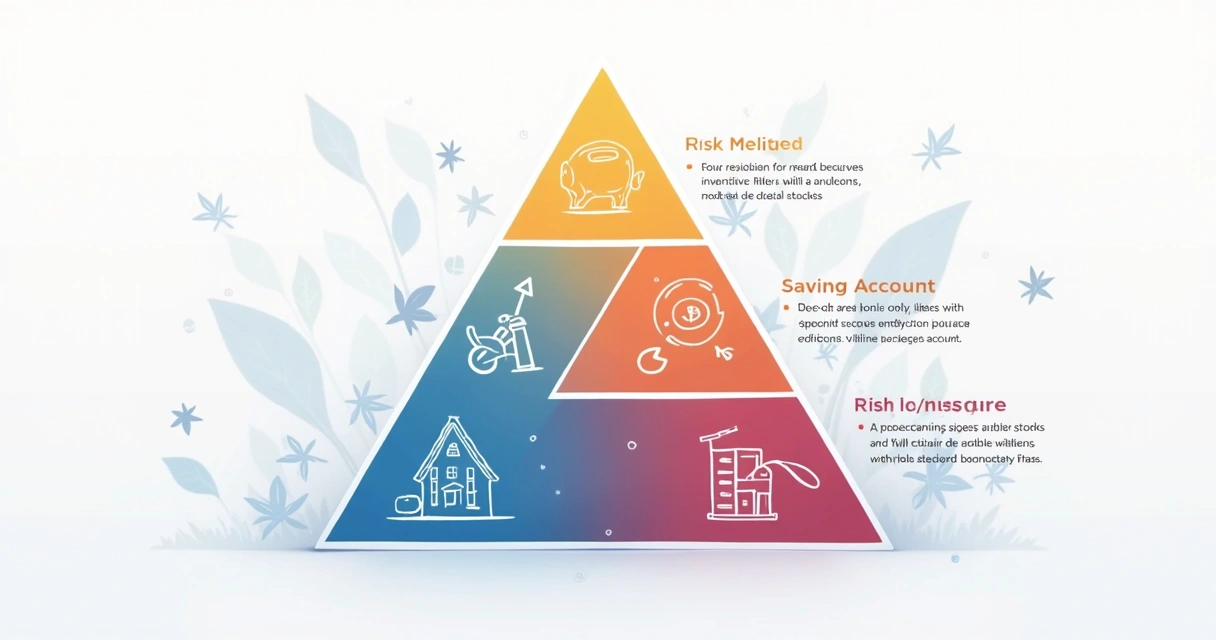A Clear Guide to Types, History, and Careers
Finance touches everything. From old merchants counting coins to apps tracking your spending, it shapes our lives in ways we often don’t stop to notice. And while the word can sound intimidating, it’s really just about how money moves: how it’s earned, saved, loaned, invested, and spent.
Advertisement
If you’ve ever wondered how different financial systems work, the path money travels over centuries, or even what a career in this field might look like, this is for you. I’ll walk through different categories, share the story of how it all began, and open up the many doors—some unexpected—where people are earning a living through financial skills.
Advertisement
Money speaks. But understanding it lets you answer back.
Let’s start simple: breaking down the types.
Understanding the main types
Some things, when sorted into buckets, just make more sense. Money management is one of them. Over years, people have found three broad directions money management tends to go:
Anúncios
- Personal finance – how individuals and households organize their resources.
- Corporate finance – how companies of all sizes keep their operations running and growing.
- Public finance – how governments handle the resources that affect us all.
Let’s look at each, a bit closer. Not just what they are, but how they really feel when you brush up against them in real life.
How people manage their own money
Personal finance is, well, personal. It’s you deciding to skip a coffee so you can save for a trip. Or planning for retirement. Or even, trying to figure out how to pay off a credit card without losing sleep.
- Budgeting: Deciding where each dollar should go before it gets spent.
- Saving: Putting money aside for emergencies, dreams, or the future.
- Investing: Taking risks, small or bold, hoping to make your money grow. Investments can be confusing at first, but a little knowledge helps.
- Credit: Using borrowed money, whether with a card or a loan—ideally, with a plan to pay it back.
- Insurance: Protecting yourself from what you hope never happens—a fire, illness, or sudden job loss.
Every choice moves the needle, even the small ones.
Personal finance is often about trade-offs and patience. Sometimes, it’s less about math and more about behavior—knowing yourself, your triggers, your habits. And the hard part? Sticking to the plan, especially when emotions and money get tangled up.
How companies work with resources
Businesses, whether corner shops or giant corporations, need to manage resources so the doors stay open and growth is possible. That’s what corporate finance is about.
- Raising Capital: Getting funds, either by attracting investors or taking on debt.
- Investment Decisions: Where to put money so the business stays healthy and profitable—new equipment, a new store, or digital tools?
- Risk Management: Protecting against losses, through strategies or insurance.
- Dividends and Share Value: Deciding if profits go to shareholders, or back into the business.
For a business, this entire dance is repeated—with higher stakes. A mistake could mean layoffs, lost opportunities, or even shutting down.
Growth happens when businesses spend wisely, not just when they earn more.
Lots of people think corporate finance is only for Wall Street types. But even small businesses face these same questions. And sometimes? A garage startup can end up making choices similar to global giants.
How governments handle money
Public finance isn’t just taxes and budgets. It’s everything from building parks to funding hospitals, running schools, and even disaster relief. When you hear talk of “deficit” or “stimulus,” you’re hearing this in action.
- Revenue: Mostly taxes, but also things like tolls, licensing fees, and investments.
- Spending: Everything from roads to space programs.
- Borrowing: Issuing bonds to fund big projects, to be paid back over years (or even generations).
- Managing Debt: National debts can be huge. The trick is handling it without tipping into crisis.
It gets political, and it gets messy. But good public finance keeps towns and cities running—schools open, police paid, trash collected. And big blunders? They can ripple out, affecting everything from your mortgage rate to the job market.
So there you have it—the three main types you’ll see again and again: personal, business, and public money management. But these aren’t walls, just guide-rails. Sometimes, they blur.
A quick map of other categories
Some things don’t fit in nice neat boxes. Take money, again. While the three types above anchor the discussion, there are many “micro” areas—specializations that pop up again and again.
- Behavioral finance: Why we do what we do with money, even when it doesn’t make sense.
- International finance: The cross-border dance of currencies, trade, and regulation.
- Green finance: Directing resources toward projects with positive environmental impacts, like solar farms or wind power.
- Microfinance: Helping those with very little capital find a way up—tiny loans, big difference.
- Quantitative finance: Using models and math to predict markets and investments. The math sometimes seems to run the show here.
And honestly, this list could go on. If there’s a new trend, it seems there’s a financial expert studying it, finding fresh ways to measure, track, and support it. It’s a field that somehow welcomes both the number-loving and the people-person.
The history: from coins to code
How did all of this begin? The story starts, oddly enough, with counting stones and notches carved on sticks. But you see the threads even further back—in promises, in trust, in barter.
Ancient beginnings, and how money shaped empires
Long before numbers were written down, people swapped cattle, shells, or chunks of salt. This was trade, but also proto-banking—one person giving something with the hope, or understanding, of getting value later on.
The shift to metal coins was a game-changer. Around 600 BC, people in Lydia (now part of Turkey) started minting coins. Suddenly, value had a new kind of portability—and tracking what you had became a lot easier. Temples acted as early banks, storing grain and valuables.
As empires grew, so did the systems to manage money. The Romans, for example, built complex roads—and needed taxes to build and keep them. Records got better, ledgers grew more detailed. But mistakes were made. Sometimes wild inflation struck (as when the Romans debased their currency to pay soldiers).
History teaches: innovation often starts with simple needs.
Middle ages and the rise of merchants
With time, Europe saw new systems. Banks in Italy (Florence, Venice, Genoa) started lending money, organizing exchanges and letters of credit that merchants used to travel and trade safely. Debt, for the first time, became both a tool and a risk.
Families—like the Medicis—ran banks that financed art, war, and politics.
Early modern era: stock markets, insurance, and national debt
By the 1600s, people in Amsterdam and London were trading shares in companies (like the Dutch East India Company). These first stock markets gave people a way to own slivers of faraway adventures, sometimes with windfall rewards…sometimes with painful losses.
Insurance grew out of a need to share risk. Ships sank; some traders lost everything. By pooling together, they could cushion each other. Lloyd’s of London started under a coffee shop roof—where news of ships and cargo would trickle in.
Nations, too, found ways to borrow at scale. Bonds let kings (and later governments) fund wars, bridges, or colonies, repaying investors later with interest. The idea was simple—but the execution often led to drama, and sometimes economic collapse.
 The 20th century: big banks, government regulation, and everyday people
The 20th century: big banks, government regulation, and everyday people
After world wars and economic shocks, we saw new rules appear—rules to tame wild markets and protect savers. Central banks took charge of interest rates and printing money. Ordinary citizens, through the rise of pension funds and mutual funds, became connected to those distant stock markets.
The rise of credit cards, ATMs, and home mortgages in the post-war boom changed lives. Suddenly, everyone could participate—from rich to poor. Banks turned local savings into global investments.
The digital age: fast, complex, and connected
From the 1980s on, computers took over. Trading sped up, math-based models took more control, and information moved at the speed of light. The introduction of fintech apps, online banks, and mobile wallets redefined how people relate to their money.
Now, a single click can move millions. Or just a few dollars.
Today, anyone with a smartphone can chart their budget or buy stock abroad. Challenges remain—cybersecurity, inequality, and the speed of change—but the pace will only quicken. For those eager, a guide to the financial market can give you a big-picture view.
Key concepts and tools everyone should know
You don’t have to be a professional to understand the basics. For the most part, it’s about being aware of how certain terms play out in the world. Here’s a handful that shape the entire industry:
- Interest rate: The “cost of money.” Whether it’s a loan, savings account, or credit card, this percentage changes the real outcome over time.
- Loan: Borrowing that comes with a written or unwritten promise to pay back—plus a fee (interest). New to loans? There are many options out there, from personal to business. Here’s a detailed breakdown on the types of loans you might encounter.
- Investment: Putting money at risk, with the hope of future growth. Stocks, bonds, real estate, mutual funds—these are just a few.
- Asset: Anything with current or future value—cash, property, stocks, rare art, even cryptocurrencies.
- Liability: The other side—debts and obligations, such as mortgages, car loans, or credit card balances.
- Portfolio: The collection of all investments owned—like a basket holding eggs of different sizes.
- Risk: The chance that things don’t go as planned. The higher the risk, the higher the potential reward—and loss.
Managing risk is the real art form.
 No matter the background, learning these words—and what they truly mean—opens up better choices, every day.
No matter the background, learning these words—and what they truly mean—opens up better choices, every day.
Technology and the changing face of finance
The leap from coins to smartphones is huge—in fact, it has upended traditional business models again and again. Sometimes, the change feels exciting; other times, overwhelming. But you don’t need to know how every algorithm works to see its impact.
Digital banking and mobile payments
Today, cash is optional. Most banks now offer mobile apps where you can pay bills, transfer funds, or check balances in minutes. Even splitting a dinner bill is easier, thanks to apps like PayPal, Venmo, or Zelle.
Digital banks—known as “neobanks”—use technology to cut paperwork and sometimes lower fees. These startups often pop up in headlines, promising a more friendly, transparent experience.
 There are many companies trying to make banking simpler, faster, or even more ethical. Some boast more features, but often at the price of complexity or higher fees. While those companies often advertise themselves as “modern,” sometimes their customer service or stability leaves something to be desired. It’s always good to see what real people say—and how long the company has been around.
There are many companies trying to make banking simpler, faster, or even more ethical. Some boast more features, but often at the price of complexity or higher fees. While those companies often advertise themselves as “modern,” sometimes their customer service or stability leaves something to be desired. It’s always good to see what real people say—and how long the company has been around.
Fintech and the rise of new jobs
Technology isn’t just about customer-facing tools. Jobs in coding, data analysis, cybersecurity, and even social media management now blend with traditional finance roles.
- Data Scientists: Analyzing trends, flagging fraud, predicting outcomes.
- App Developers: Building the next wave of user-friendly banking or investing apps.
- Compliance and Cybersecurity: Keeping personal information safe as threats evolve.
The newest jobs often sound like science fiction at first.
And it’s not limited to techies. On the creative side, there’s huge demand for writers, educators, and product designers who can make complicated money ideas simple and clear.
Careers: choosing a path
Plenty of people think careers in this field are only for math whizzes or those with Ivy League MBAs. The truth is, the path is wide—open to lots of different skills, backgrounds, and personalities. Some jobs demand suits and ties. Others, a laptop and an internet connection.
Traditional roles in banking and corporate sectors
- Commercial Banker: Working with businesses to offer loans, manage accounts, and support local economies.
- Investment Analyst: Researching stocks, funds, or industries to guide where big money flows.
- Accountant: Tracking, recording, and checking the numbers for companies or individuals.
- Personal Financial Advisor: Meeting with regular people to help plan retirement, save for college, or buy a house.
Each of these sits at the intersection of numbers and people. Some days are predictable. Others, full of curveballs.
Roles in technology and entrepreneurship
- Fintech Product Manager: Leading teams to design new products—apps, digital wallets, or tools for investors.
- Startup Founder: Risking it all on a new way to solve old money problems. Some ideas flop. Some soar.
- Compliance Analyst: Making sure new tools follow government rules, protecting both the company and customer.
These roles move quickly, sometimes too quickly for comfort. But the upside? A real chance to shape how future generations use and understand money.
Specialized paths
- Insurance Underwriter: Deciding who (and at what price) gets protection, from homes to health.
- Risk Manager: Predicting and preparing for what could go wrong—in companies, hospitals, or even sports leagues.
- Environmental, Social, and Governance (ESG) Analyst: Measuring how companies score on green and ethical metrics, for investors who care.
There’s a niche for every passion.
So, if you’re drawn to macro trends—what the whole world’s doing—or the smallest detail, like auditing expenses, you’ll find a fit.
 Skills that matter most
Skills that matter most
Maybe you see yourself in one of those jobs. Or maybe you’re not sure yet. Either way, certain skills are trusted and useful, across every path:
- Comfort with numbers. Not genius skills, but patience to check your work.
- Communication. Can you explain complex things clearly, and ask the questions others miss?
- Attention to detail.
- Problem-solving. Sometimes, the answer isn’t obvious—or even present. Keep poking at it.
- Adaptability. Rules change. Tech changes. Customers change. It helps to stay flexible.
Experience is nice—but curiosity wins more often.
Education: degrees, certificates, and learning on the job
There’s no single route to a financial career. Some start with a degree—a business major, math, or economics. But many find their way in through related fields: marketing, computer science, or even psychology.
Certifications, like the CFA (Chartered Financial Analyst) or CPA (Certified Public Accountant), open some doors. Others take online courses, earning credentials at their own speed. And countless professionals learn by doing, starting with basic roles and climbing up with experience—not with a diploma.
University is just one option. Sometimes, the best lessons come from a messy project, a failed budget, or a solution you create under pressure.
 Finding the right fit
Finding the right fit
If you’re curious about the different kinds of jobs out there, there are plenty—sometimes more than people expect. There are comprehensive resources out there listing the range of jobs, from the classic to the cutting-edge.
And if wondering where people work—banks, consultancies, fintech companies, insurers, non-profits, even government agencies—all are in the mix. A list of finance-focused firms can give you a sense of the landscape.
Challenges and trends shaping the future
Change doesn’t stop. In this world, it charges forward.
Inclusion and access
Not everyone has equal access to good advice or the right tools. From city centers to remote villages, the “unbanked” still number in the billions. Companies and governments are coming up with creative solutions, but the road is long.
Sustainability and “green finance”
Pressure is building for all financial operations to consider climate impact, ethical choices, and long-term thinking, not just quarterly profits.
 Cyber risks and digital security
Cyber risks and digital security
Ever hear of a company losing millions to hackers? It happens more than anyone likes to admit. Protecting information, and teaching people to be wary, is one of the most pressing concerns.
Faster tech, smarter decisions
Artificial intelligence, blockchain, and big data analytics are pushing rapid changes. Some love it—others worry about transparency or jobs. What’s certain: learning never stops for anyone who works with money.
The only constant is change—best to prepare for it.
Conclusion
The story of money is the story of people. Changing, adapting, sometimes stumbling, but always searching for a better way forward. In every century, from the first coin to today’s apps, new ideas challenge what came before. Careers in this field are as varied as the people who choose them—wide enough for mathematicians, storytellers, risk-takers, and steady hands alike.
Whether you’re planning your own budget, dreaming of managing investments, or thinking about making a difference on a global scale, understanding even the basics opens doors. There are no guarantees—just more informed choices, and, perhaps, fewer surprises along the way.
Knowledge gives you options. Choices give you freedom.
Frequently asked questions
What are the main types of finance?
The three broad categories are personal, corporate, and public finance. Personal deals with individual and household money matters—budgeting, saving, borrowing, and investing. Corporate refers to business resource management, including funding, investments, and risk. Public finance is about how governments generate income, spend, and manage debts. There are also many specialized areas, like green and behavioral finance, that focus on emerging needs and trends.
How can I start a finance career?
Begin with understanding the basics, then choose a direction that suits your skills and interests. Some people pursue business or accounting degrees, while others start in related fields (IT, math, marketing) and move in later. Certifications, like CFA or CPA, help if you want to specialize. Many find entry-level positions—bank teller, analyst, customer service—and climb from there, learning on the job. Curiosity, clear communication, and comfort with numbers go a long way.
Is a finance degree worth it?
A degree can open doors and make some paths smoother, especially in competitive roles. But it’s not the only route. Many successful workers started elsewhere and shifted over with extra training or experience. Certificates, hands-on projects, and networking matter, too. The value of a degree depends on your career goals, learning style, and the roles you’re interested in.
What is the history of finance?
Money management spans from ancient barter to the digital age. Early systems relied on trade and trust, then coins enabled easier exchange. Medieval banks evolved as merchants traveled further, while the creation of stock markets and insurance brought new ways to share risk. The last century introduced regulation and technology—credit cards, computers, and now mobile apps—making money movement faster and broader than ever.
What jobs are best in finance?
The “best” job depends on your priorities. If you want creativity and impact, fintech startup roles are appealing. For stability and structure, traditional paths like accounting or commercial banking work well. Investment analysts and portfolio managers offer high incomes but usually require certifications and longer hours. Some prefer the human side—advisory roles, education, or non-profits. There’s variety for every personality and skill set.
 The 20th century: big banks, government regulation, and everyday people
The 20th century: big banks, government regulation, and everyday people Skills that matter most
Skills that matter most Finding the right fit
Finding the right fit Cyber risks and digital security
Cyber risks and digital security




